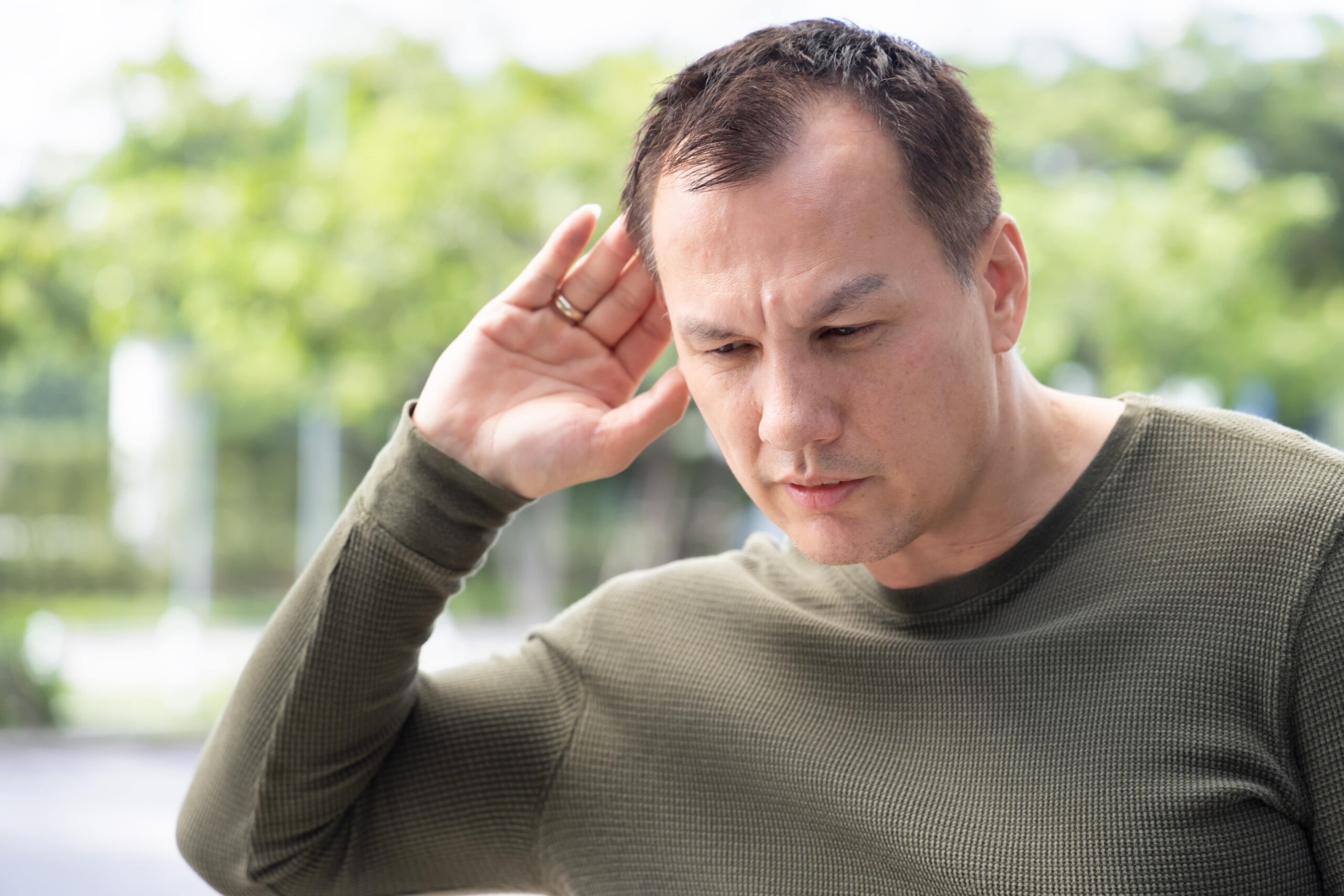Achoo! Seasonal allergy season returns to Colorado
After another cold and snowy winter, Spring is finally upon us, and consistently warmer days are just around the corner. But, the return of Spring also means the return of seasonal allergies which, in 2021, 26% of the adult population suffered from.
Allergies, unfortunately, can cause a whole host of symptoms, even beyond the typical stuffy nose, sore throat, and itchy eyes. In fact, allergies can sometimes cause hearing loss or even make existing hearing loss worse.
How do seasonal allergies affect my hearing?
Similar to illnesses like colds and the flu, allergies are a common cause of conductive hearing loss, which occurs in the outer and middle ear when sound conduction is prevented by a specific problem, like fluid build-up, earwax, or inflammation from an infection (or allergy).
Before we dig into what’s actually happening in the body for an allergy to cause hearing loss, we need to understand what allergies are in the first place.
In the simplest terms, an allergy is a response that happens within the body when your immune system perceives something as a threat to your health and begins creating antibodies to fight against it. As antibodies are created, they begin releasing a chemical called histamine, which is the source of all those common allergy symptoms — congestion, itching, sneezing, and more.
This process of protecting your body is incredibly helpful for bacteria and viruses that might actually be a threat to your health, but it may be a bit excessive to launch a full-fledged defense against pollen particles. Luckily, antihistamines, like Claritin, Allegra, and Zyrtec, can help lessen the symptoms caused by allergies, including those related to your hearing.
As part of its role to protect your body from threats, histamine increases mucus production in the body, which can build up in your middle ear and block the passage of sounds to the hearing center in the inner ear. This excess fluid in the Eustachian tube can also cause pressure, which can make you feel like your ear is clogged, like when you’re climbing altitude in an airplane.
Depending on the severity of your allergy symptoms and how much excess fluid is left to build up in your ear, you may be at an increased risk of developing an ear infection, as well, which is another major cause of conductive hearing loss and can have long-lasting effects on your hearing if left untreated.
Can seasonal allergies impact my balance?
While the simple existence of allergies doesn’t cause balance disorders, the excess fluid that they can cause in the ear canal can certainly cause problems for your balance — another way in which allergies can throw your entire system off.
The ear canal is at the center of your body’s ability to balance because it houses the vestibular system, which uses a combination of fluid levels and a group of specialized cells to keep your body balanced. When fluid levels are increased and inflammation is present within the ear, these two systems can’t work as effectively.
The fluid in your ear remains mostly stable at a certain level throughout your day, and things like the movement of the head, pressure change, and gravity cause shifts in that fluid, which is then picked up by the cells in the vestibular system and sent as signals to the brain. From there, the brain triggers the rest of your body to rebalance.
With how sensitive this system is, an increase in fluid caused by allergies can lead to vertigo (a severe spinning feeling) or difficulty remaining balanced. Furthermore, inflammation can cause damage to the cells that are responsible for passing balance signals to the brain, making it harder for your body to respond to changes in balance.
How to care for your hearing during allergy season
While no two people experience allergy symptoms in the same way or at the same severity, it can be jarring to experience hearing loss due to an allergy-driven stuffy nose, so it’s important to understand your options in case you do have this experience.
The easiest way to ensure your hearing stays in tip-top shape this allergy season is to simply treat your allergy symptoms. Try taking an over-the-counter antihistamine, placing a warm compress over your sinuses, and staying hydrated to help break up that excess mucus in the system.
Another simple way to prioritize your hearing health while battling allergy symptoms is to get your hearing checked. While most hearing loss caused by allergies is temporary, long-term damage can still occur, and a sudden onset of hearing loss may indicate a deeper issue that should be addressed sooner than later. By visiting a hearing care provider and getting tested, you can walk away with peace of mind or alternative treatment options for your ear-related allergy symptoms.
–
Contact Colorado Ear Care for all your hearing needs
If seasonal allergies are causing issues with your hearing, Colorado Ear Care is here to help! Contact us today.


